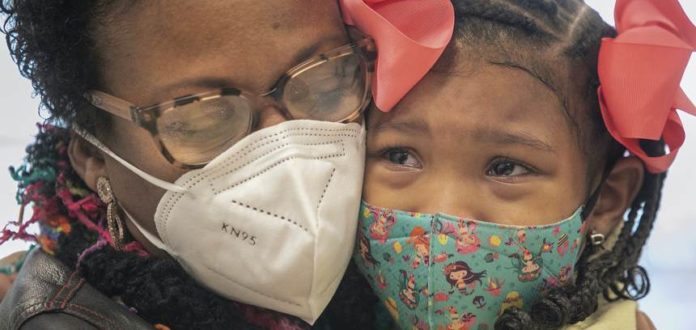In an unprecedented move, the CDC’s Advisory Committee on Immuniization Practices (ACIP) is looking at adding a vaccine that still requires an emergency use authorization (EUA), to its childhood vaccine schedule. The website states (emphasis added).
Things to Consider: This meeting will discuss influenza vaccines. Votes on recommendations for pneumococcal vaccines, adult immunizations, child/adolescent vaccination schedules and COVID-19 vaccines have been scheduled. The Vaccines For Children (VFC), vote on COVID-19 vaccine has been scheduled. As priorities dictate, agenda items can be changed. For more information on the meeting agenda visit https://www.cdc.gov/vaccines/acip/meetings/meetings-info.html .
On Wednesday, the presentations and votes on the COVID vaccine are held. The public can comment on Regulations.gov up to the October 20 vote. The FDA and CDC have expanded the use of Omicron jabs in children as young as 5 years old. This meeting follows this. These recommendations, as many have noted, are based upon tests on mice. Makary tweeted (spacing and punctuation corrected).
The FDA does not require clinical trial data. Pfizer and Moderna’s Omicron vax, which was tested in 8 mice, was approved today for children who are most at risk of developing vaccine-induced myocarditis. FDA ignored their experts. This is the most politically charged FDA & CDC in American history.
Worse, the Informed Consent Action Network just received the data from CDC’s V-Safe Program. These data are not the same as the much-maligned VARES program. V-Safe had approximately 10 million users. Individuals were able to upload their data before they received their first vaccine. Data collection begins December 2020. It captures people who are motivated to get the vaccine and monitors their response.
Aaron Siri, an I-CAN attorney, claims that the CDC promised to make public the V-Safe data once it was set up to monitor the vaccination rollout. They had to get a court order before they could release the data. ICAN created a searchable database, but the data fields are limited. The CDC did not break out the age groups below three years and three years and older. It still provides shocking insights that the CDC had for months but never shared with the general public.
Seventy-two thousand people, or 7.7% of V-Safe users, experienced a medical emergency that required hospitalization, emergency room intervention and/or medical attention. 25% of V-Safe users experienced an event that prevented them from working or school and/or made it difficult to attend school. The majority of data was collected between May 2021 and June 2021. The public is only now seeing the data for the first time.
This recommendation is only being considered by the United States. Other countries have dropped their recommendations for children younger than 18 years old, while others have recommended that the vaccine only be given to people who are at high risk of serious illness. How can ACIP consider including V-Safe in the childhood schedule when nearly 40% of V-Safe users report some kind of reaction that has affected their daily activities, up to hospitalization?
Many states and school districts could require mRNA vaccines if ACIP includes them in the schedule. Some states don’t allow religious exemptions from the mandatory vaccination schedule. Only Florida has so far deviated significantly from the CDC recommendations. The state has decided to stop recommending shots for healthy men younger than 40 after an analysis of vaccine injuries. The Florida surgeon general officially rebuked the mRNA vaccines against healthy children in March.
One member of FDA’s Vaccines & Related Biological Products Advisory Commission (VRBAC), has made a public statement on a risk/benefit analysis regarding mRNA vaccines. In an interview with Yahoo Finance, Dr. Paul Offit suggested that boosters and new vaccines be reserved for high-risk people. Offit admitted that only people over 75 have benefited from the third and fourth booster shots.
Offit replied to the interviewer when she noted the low booster intake among children. A booster gives you protection against mild illnesses for a few months more. He said, “So low risk, little reward.” He added that he didn’t believe it would have much impact on otherwise healthy young people.


